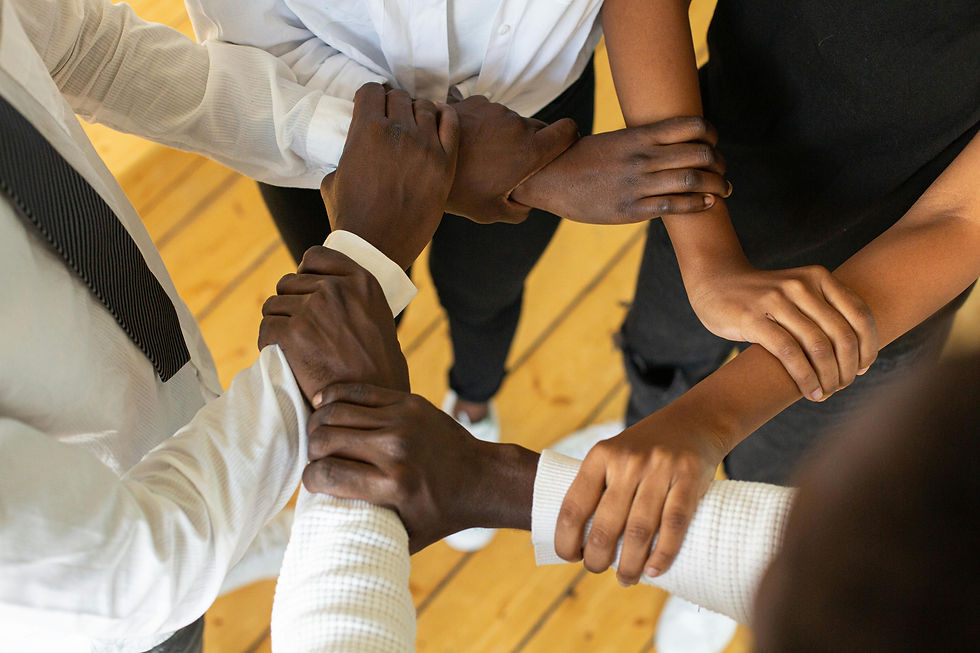Adulting 101: Savings Edition
- The Lighthouse
- Dec 27, 2018
- 4 min read
Updated: Oct 11, 2023
“I-N-D-E-N-D-E-P-E-N-T, do you know what that means?”
Sing this with me— but only if can relate to paying all of these bills, too. I’m in my 20s. I’ve found it to be a season of life where I’m sort of floating and figuring things out as I go. One of those things, in particular, is finances.
Growing up in a Black household, my family’s discussions about money were close-cased by two questions: (1) Are you paying your tithes and offerings? and (2) Are you saving some? To both, I answered “yes,” but when I turned the tables to ask about their finances, the answers seemed a bit less straightforward. Near the end of my time in undergrad, I got my first “You’re pre-approved for a credit card you don’t need!” letter and application in the mail. I applied, was indeed approved, and treated myself to a pair of shoes. I didn’t charge a thing for a while, realizing I didn’t have the money to pay off the balance each month, nor did I see how the credit card could benefit me–until later.
If you want to get better at paying down your debt and saving in the process, the following tips are for you:
Ask for Help!
If you can’t talk to your parents, who may be going through their own financial struggles, pick the brain of your HR guru at work. Make an appointment to speak with someone at your local bank or credit union. Even if you don’t have an account with a certain bank, explore your options and build relationships with the financial counselors. The more someone knows you personally, the more they may be able to give advice about your specific financial situation. Thus, it feels more like coaching and less of a transaction. Sometimes the best thing to do is start with a budget–no spreadsheet required. There are a few apps that can make budgeting a breeze.
Credit and Travel
The idea of credit used to baffle me. I did not don’t want to be in debt, so why should I get a credit card? What kind of credit card is the best for me? Since I’ve had a credit account, I’ve learned how to leverage it.
Pay your bills with a credit card and use your personal cash to pay off credit card debt each month. This method is great if you have a rewards card that earns miles and points. For some people, it’s a weird cycle, but it works if you are opposed to using credit on certain expenses. I used to think this strategy seemed scammy, but it works. Nerdwallet is a great online tool that will compare interest rates on credit cards, choosing the best one for you based on your needs and credit score. They offer free credit improvement recommendations, too, much like Credit Karma.
If you’re a frequent traveler to see family or just want to hop the continents, look at rewards that help you gain points for cheap flights. If you plan a girls-trip, offer to purchase on behalf of the crew so you can gain the flyer points and maybe take the next trip solo.
Consolidate Your Student Loan Debt
Dave Ramsey suggests consolidation as one way to pay off debt, but maybe this strategy is not right for you, and that’s OK. Many “get debt free quick” manuals don’t consider the lower middle-class–AKA many Black girls who can’t generally rely on well-off family members to help with student loans.
If you have multiple education-related expenses, try to consolidate. This may be complicated if you have different lenders, but it IS doable. Look into payoff options that have benefits if you work for a nonprofit, teach in a federally-identified school district, or work in the state where you graduated because there may financial incentives which will help reduce student loan debt.
Other Things That Aren’t *Really* My Forté
Getting life Insurance and health insurance or looking into open enrollment are also well worth your time to research, instead of falling down recipe video holes during your midday Instagram break. No one wants to think of what would happen if they left this earth prematurely. Unfortunately, it happens all the time. Life insurance makes sure that your debt doesn’t transfer to someone else without the means to help pay for it. I only want to leave behind a bawse legacy for my loved ones — not a mountain of debt.
Secondly, if you’re not insured through your employer, consider purchasing insurance during open enrollment season, and research plans that fit your budget. Even if it seems out of your budget, remember that preventative care is better (and cheaper) than emergency care. If you’re still under age 26 and are not on a parent’s insurance plan, have a conversation with them about being added and covering the premium increase.
Finally, set small, achievable goals. There’s no need to overwhelm yourself. The most important thing is that you’re learning and making strides towards being a more financially responsible person.
Happy saving!









Comments